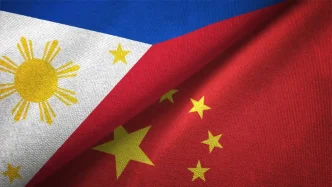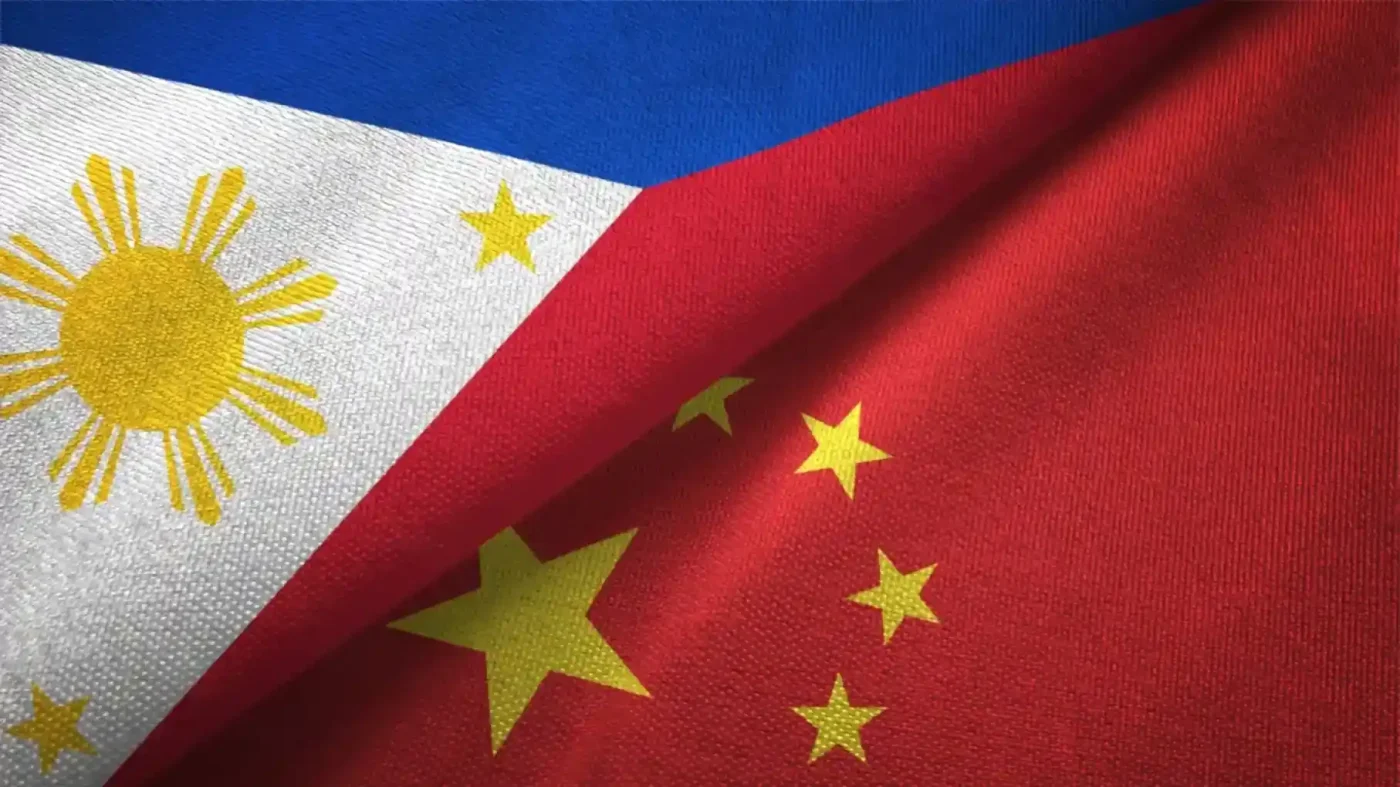Manila finds itself at a turbulent intersection of domestic political upheaval and international maritime friction. On one hand, the Philippine Senate grapples with internal dysfunction and a high-profile impeachment case against Vice President Sara Duterte, while on the other, a Chinese vessel capable of deep-sea mapping has recently exited the country’s Exclusive Economic Zone (EEZ), reigniting concerns over sovereignty in the South China Sea. These concurrent crises underscore the challenges facing President Ferdinand Marcos Jr.’s administration as it navigates governance and territorial integrity.
Senate Dysfunction: A Circus of Governance
The Philippine Senate, often seen as a bastion of democratic debate, has recently been described by critics as a “circus” of mismanagement and personal vendettas. Reports highlight procedural lapses, heated exchanges, and a lack of focus on pressing legislative priorities. Key issues, such as budget allocations for disaster resilience and economic recovery, have been sidelined by infighting among senators, drawing public frustration over the chamber’s inability to deliver results.
Analysts point to systemic issues within the Senate’s structure, including weak party discipline and the influence of political dynasties, as root causes of the dysfunction. “The Senate has become more about posturing than policymaking” said political commentator Maria Reyes, reflecting a sentiment echoed by many Filipinos on social media platforms. Public trust in the institution, already strained by past scandals, risks further erosion as these dramas unfold on national television.
Amid this chaos, the impeachment case against Vice President Sara Duterte has taken center stage. The legal foundations of the case rest on allegations of misuse of public funds and failure to uphold constitutional duties, though specifics remain under scrutiny. Duterte, daughter of former President Rodrigo Duterte, has dismissed the charges as politically motivated, accusing her detractors of attempting to destabilize her father’s lingering influence in Philippine politics. Her supporters argue that the case distracts from more urgent national issues, while critics insist it is a necessary test of accountability for high-ranking officials.
The impeachment proceedings, still in early stages, have yet to produce concrete evidence of wrongdoing, and legal experts caution against premature conclusions. “If confirmed, these allegations could set a significant precedent for executive accountability” said constitutional lawyer Juan dela Cruz. “But without substantiation, the process risks being perceived as a witch hunt.” As hearings progress, the Senate’s handling of the case will likely shape public perception of its legitimacy and relevance in a polarized political landscape.
Maritime Tensions: A Chinese Ship in Contested Waters
While domestic politics dominate headlines, a quieter but equally significant development has unfolded at sea. A Chinese vessel, identified as capable of conducting deep-sea mapping, recently departed the Philippines’ EEZ after lingering in disputed waters of the South China Sea. Philippine authorities monitored the ship’s movements, raising alarms over potential data collection that could bolster China’s claims in the region or support military operations.
The South China Sea remains a flashpoint for geopolitical tensions, with overlapping claims from China, the Philippines, Vietnam, and other neighboring states. The Philippines has repeatedly asserted its rights under the 2016 Arbitral Tribunal ruling, which invalidated China’s expansive “nine-dash line” claim. However, Beijing’s continued presence in the area, including the deployment of research vessels and fishing fleets, has frustrated Manila’s efforts to secure its maritime boundaries.
Naval experts suggest that deep-sea mapping could provide China with critical information about underwater terrain, potentially for submarine navigation or resource exploration. “Such activities, if unchecked, undermine our sovereignty” said Rear Admiral Jose Lim of the Philippine Navy. The government has lodged diplomatic protests over the vessel’s presence, though China has yet to issue a formal response. The incident adds to a series of encounters in the region, including clashes between Philippine and Chinese coast guard vessels near Scarborough Shoal earlier this year.
For coastal communities dependent on fishing within the EEZ, these incursions represent more than abstract territorial disputes. Fishermen from Palawan have reported dwindling catches and harassment by foreign vessels, exacerbating economic hardship. “We can’t fish where we used to without fear of confrontation” said local fisherman Miguel Santos. The Marcos administration faces mounting pressure to protect both national interests and the livelihoods of its citizens in these contested waters.
Electoral Preparations Amidst Uncertainty
Adding to the political complexity, the Commission on Elections (COMELEC) announced the delivery of the final batch of 7.5 million ballots to Metro Manila ahead of upcoming national and local elections. This logistical milestone signals progress in preparations, yet it also highlights the stakes of the current political climate. With the Senate mired in controversy and public confidence wavering, ensuring a transparent and credible electoral process is paramount.
COMELEC officials have pledged to safeguard the integrity of the vote, deploying additional security measures in high-risk areas. However, concerns persist about potential disruptions, particularly in regions with histories of electoral violence or political interference. “The elections will test not just our systems but our democratic resilience” said COMELEC spokesperson Ana Mercado. As ballot distribution continues, civil society groups are mobilizing to monitor the process and prevent irregularities.
The convergence of these electoral preparations with ongoing Senate drama and maritime disputes creates a volatile backdrop for the Marcos administration. Political stability during the election period will be crucial, especially as opposition figures seize on governance failures to rally support. The administration must balance these internal challenges with the external pressures of asserting maritime rights, a task that will define its legacy in the eyes of both Filipinos and the international community.
A Test of Leadership and Sovereignty
The Philippines stands at a critical juncture, where domestic governance and international relations are inextricably linked. The Senate’s dysfunction and the impeachment case against Vice President Duterte reflect deeper issues of accountability and political maturity, while the Chinese vessel’s presence in the EEZ underscores the persistent threat to national sovereignty. Together, these crises test the Marcos administration’s ability to unify a fractured political system and defend the country’s interests on the global stage.
Public sentiment, as gleaned from social media and local reports, reveals a mix of frustration and cautious hope. Many Filipinos express disillusionment with the Senate’s antics, yet they remain vigilant about the South China Sea, viewing it as a matter of national pride. The government’s response in the coming weeks—whether through legislative reform, diplomatic engagement with China, or robust electoral oversight—will signal its priorities and capacity to lead.
Economically, the stakes are equally high. The maritime disputes directly impact fishing communities and potential energy exploration in the South China Sea, areas critical to the Philippines’ growth. Meanwhile, political instability risks deterring foreign investment at a time when post-pandemic recovery remains fragile. The administration’s budget proposals, currently stalled in the Senate, include funding for coastal defense and economic aid to affected regions, but their passage remains uncertain amid the ongoing chaos.
Historically, the Philippines has weathered political storms and external pressures through a combination of resilience and strategic alliances. Partnerships with the United States, Japan, and Australia have bolstered its position in the South China Sea, while domestic reforms have periodically addressed governance challenges. Yet, the current confluence of issues demands a more cohesive approach, one that bridges internal divisions and projects strength abroad.
As the impeachment case unfolds, elections approach, and maritime tensions simmer, questions linger about the Philippines’ path forward. Can the Senate rise above its dysfunction to address the nation’s needs? Will diplomatic efforts deter further incursions in the EEZ without escalating conflict? And how will the Marcos administration balance these competing crises to maintain public trust? For now, the answers remain elusive, but the coming months will undoubtedly shape the country’s political and territorial future.
















